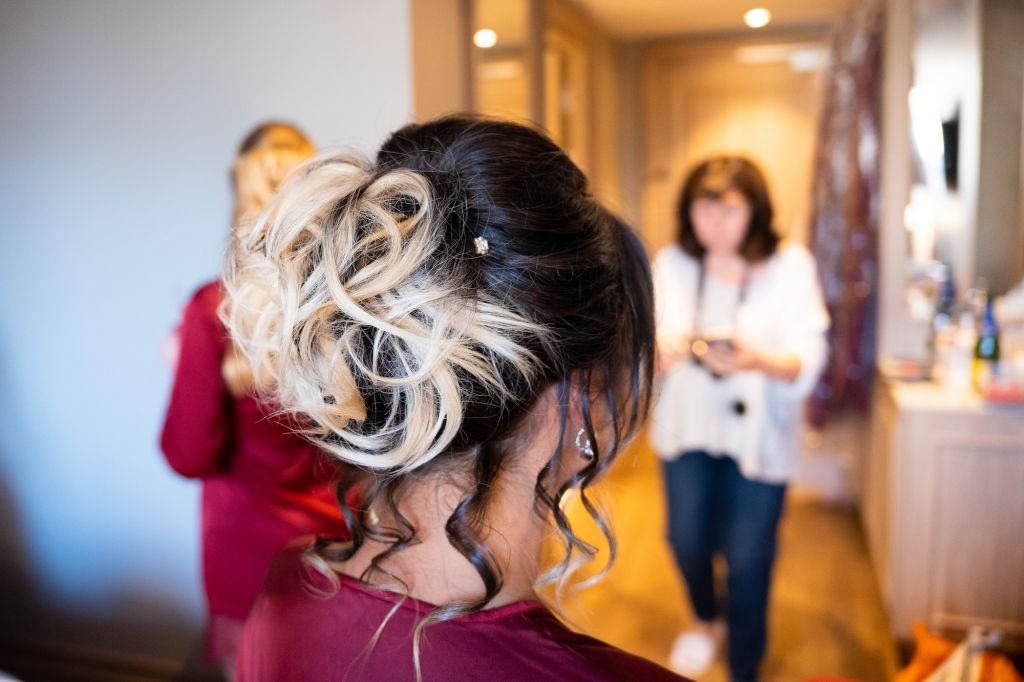How do you become a wedding videographer?
I had been using a small handheld camcorder since my children were very little in the 1990's.
By 2012 I was working as a magician at weddings and in between the weddings, going to a lot of wedding fairs to gather some interest in my magic and get the next booking. I noticed a strange thing which was that although every wedding fair had at least one photographer, videographers were hardly ever seen at the wedding fairs I attended and searches on the web didn't show up many in my area either.
I realised that there was probably a niche market just waiting to be filled but how did I make the transition from occasional camcorder user filming children playing into making a proper wedding video? I looked around for some training that would get me up to speed and booked a course with Len Bateman. Len had retired from making wedding videos to concentrate on the training side so my wife and I travelled to Milford Haven in our camper van, pitched up on a site and I spent a few hours each daytime receiving Len's training.
It wasn't quite what I had expected but it was exactly what I needed. Len had the unique distinction of having three fellowships in Photography in Videography and Wedding Videography specifically and was very open to teaching me everything he knew. The course was just me and him - no-one else so was ideal in terms of me being able to ask questions and explore ideas.
The content was very little about technology. I still look at camera specifications with some bewilderment and wonder if bigger numbers are better than smaller numbers. Every year the major camera companies announce a new model which they claim has so many advantages in speed and capability over their previous models (maybe). There was nothing in the course about camera specifications. I had taken my small Panasonic hand held camcorder along just in case with the intention of finding out what Len recommended to me as the best camera to buy for the job but it wasn't about camera specifications. It was mostly about weddings and light.
There was some discussion about apertures and I remember Len's rule of thumb was:
Outdoors in bright sunlight F16
Outdoors with some cloud cover F11
Outdoors with a lot of cloud cover F8
Indoors F5.6 and wider.
Simple and easy to remember.
Len also talked a lot about cutting out the top light because it created dark shadows under the eyes and under the chin. Very unattractive for bridal photos and videos the same. He explained that as most wedding ceremonies occur round about midday and afterwards is when couples go out to be photographed, the problem of top lighting is at its most problematic near midday when the sun is at its highest. Take them into the shade of a tree or into the shade of the church, he recommended.
He also talked about the quality of the light from different directions. The softest light comes from the north so it is best to get the couple to face in that direction so that they are illuminated by the softest light.
I thought about this for a couple of seconds and said "But doesn't that mean that your camera is likely to be facing the sun? I thought that was a bad idea."
Len explained the myth about not shooting into the sun was put about by Kodak in the early days of film so that they could make life easier for themselves when developing their customers' films.
There was advice about where to stand during the ceremony - facing the bride at the front of the hall. There was a section on etiquette when filming a church wedding with a vicar or priest present. For a church ceremony I will usually try if I possibly can, to attend the wedding rehearsal. This gives me a chance to say hello to the vicar or priest in order to smooth the way for the real event.
Possibly the best bit of advice was about music. Find out what music the couple like. Listen to the lyrics and if you can match up what is happening during the wedding with what the lyrics are saying then you've really struck gold. Its all about the emotional content and connection. Watching a Hollywood blockbuster would be nothing without the music even if you don't realise that you are listening to it. You would notice it if it suddenly wasn't there and a lot of the emotional connection that you develop with the storyline comes form the music. It can be the same with a wedding video. Getting the music to fit with the actions on screen is an ideal to aim for but difficult to achieve. I usually settle for choosing one of the couple's choices of music that fits the mood at the time which can be upbeat or slow and romantic.
So there was nothing about colour grading for example. I don't colour grade my films. Usually, apart from cropping the clips I don't edit them in any way. The philosophy being that its best to shoot well and shoot what you need in the first place, rather than shooting poorly and then trying to recover a clip in edit.
I learnt a lot from my time with Len and am eternally grateful for what he taught me and the confidence this gave me that I was doing the right things.
